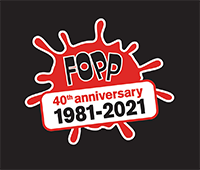A most entertaining example of the ‘young girl moves to the big city’ genre that was so common in 1960s British cinema. This one is a little more wholesome and affectionate than its racy title and poster suggests, but as a snapshot of mid-60s London just before the scene explodes, it’s truly fascinating. It features a cast of very fresh famous faces such as Francesca Annis and Ian McShane, a pre-Doctor Who Anneke Wills, Hammer glamourpuss Suzanna Leigh and the darkly charismatic (when is he not?) Klaus Kinski.
Edgar Wright
Writer/director Gerry O’Hara on ‘The Pleasure Girls’
In the early 1960s I was having a great time as a freelance assistant director. I had had the good luck to get the job of assisting Laurence Olivier on Richard III (1955). That alone lifted me out of the Old Mother Riley zone and on to big-budget movies. Anatole Litvak came over from LA and simply said to the production manager, ‘Get me the guy who worked for Larry!’ After that came Robert Rossen, Otto Preminger, Carol Reed, Vincente Minnelli, Bryan Forbes and the irrepressible Tony Richardson for Tom Jones (1963).
Somewhere along the line I had a stint on the never-ending Cleopatra in Rome. At first I was on the rehearsal unit ministering to the needs of Hermes Pan’s stunning group of chorus girls for the big parade. I managed to spend some time cultivating a wily old pachyderm in the elephant tent who seemed to take great pleasure in removing my handkerchief from my pants pocket until Walter Wanger and Joe Mankiewicz had me take on the job of trouble-shooter, or ‘ramrod’ in LA parlance. This was fun until Jimmy Woolf hauled me back to London for The L-Shaped Room. Jimmy was a wonderful character. I was told he died in bed at the Beverley Hills Hotel with an open script in his lap! Not a bad way to go…
By then I had got the ‘directing bug’ – something of a curse one way or another. A producer I knew who used to be a spark on the rail at Elstree tempted me with the three-week ‘quickie’ That Kind of Girl (1963). Most of the pre-production and some of the casting had been done and I was told, quite firmly, that I would not be involved in the editing; I simply had to shoot the movie in 18 days and walk away. A strange deal, but those things happened in the Sixties.
Less than a week after the shoot I was back assisting Otto in New York, preparing for The Cardinal.
But the ‘bug’ was creeping up on me! I started writing spec scripts in my spare time, printing off, say, 25 copies and bombarding various companies. Mostly they ended up on the ‘slush pile’ with very few even bothering to send a rejection slip.
Luckily I had been sending them to Raymond Stross’s company – he had produced The Leather Boys (1963) and similar medium-budget movies. He happened to be in hospital for a spell, and told his secretary to send him some scripts to pass the time. He read a couple of mine and called me early one morning from St Mary Abbots hospital in west London. He didn’t want to buy the scripts, but liked some of the dialogue. He invited me to tea – served by his beautiful wife Anne Heywood – and gave me the idea for The Pleasure Girls.
It had been staring me in the face and I had completely missed it. He gathered that I lived in Chelsea and was part of the ‘Swinging Sixties’ scene as it was then called. I did spend a lot of time in the clubs and discos, and regularly hobnobbed with the notorious landlord Peter Rachman and Mandy Rice-Davies over afternoon tea at the Kardomah coffee house on the Kings Road. So Raymond said ‘Write about what you know.’ I went home and told my flatmate that I didn’t much like the idea, but he gave me a hard time – a producer suggesting something and me too dim to take him up on it.
So I started sketching out the plot there and then. My original title was A Time and a Place. I decided to ‘put a clock on it’ – the story would take place within a weekend and would mostly unfold in a house split into bedsits and occupied by various youngsters, including a gay couple (as a result of which the BBC’s Monitor programme did a whole piece on this, the first screen kiss between a couple of gay men… it was only a peck!)
I passed the drafts on to Raymond who was very helpful, but one day I went to his house in Kensington and he had good, and bad, news. He had set up a movie with Anne in LA and had to pull out of the project. He assigned all copyright to me, but I was effectively back where I started. I began peddling the script with the usual dire results until I went back to Michael Klinger at Compton Films, who had made That Kind of Girl. I bluffed, saying I had some interest from another company: a lie, of course, but he bought it.
The Pleasure Girls was shot in four five-day weeks – no overtime! – but I had designed it for that sort of thing. I was very lucky with the casting. Ian McShane and Francesca Annis were up-and-comers and Klaus Kinski just happened to be passing through town (this was before Dr Zhivago and he did nine days for just £900). Suzanna Leigh was on her way to Hollywood, and most of the cast went on to do good work on stage or in film and television.
I think the budget was around £30,000, ten or 15 more than That Kind of Girl. I enjoyed the shoot, with a wonderful crew including cameraman Mike Reed and operator Dennis Lewiston. The clapper-loader, Alec Mills, went on to photograph a James Bond or two. I think it was the Lee Brothers’ first lighting job, with ‘borrowed’ lights from MGM – the MGM studios at Elstree were emptying out by then.
Again I was elbowed from the final edit, and I loathed the rum-tee-tum title song, which reminded me too much of the ‘We Are the Ovaltineys’ theme from the children’s show.
The critics saw through the promotional mush and I got some marvellous reviews – ‘Really a Pleasure’ was the headline in The Sunday Telegraph. I put some noses out of joint by buying a couple of pages in the trades to flaunt the notices. They cost as much as my directing fee but within a week I had contracts worth more than the entire budget for the film!
One of the contracts I turned down was an offer from Charles Feldman, the ex-VIP agent in Hollywood, who decided to produce Casino Royale with assorted directors. The offer via a big London agency was to be a sort of ‘director-in-waiting’ in case someone came unstuck. But after a couple of grandiose meetings with Charlie at The Dorchester I smelled a rat and declined. I think I was intended to be some sort of informer – a particularly unpleasant word in those post-McCarthy days – on what was actually happening at Shepperton studios. Charlie’s last words were ‘You’ll be back’, but he was wrong.
The Pleasure Girls played endlessly on black-and-white television, but there were no residuals in those days. As always in the movie business you win some and you lose some… but it was great fun!
Gerry O’Hara, March 2010
Extracted from booklet notes for The Pleasure Girls Blu-ray/DVD release (BFI, 2010)
LOOK AT LIFE: MEMBERS ONLY
UK 1965
9 mins
THE PLEASURE GIRLS
Directed by: Gerry O’Hara
©: Compton-Tekli Film Productions Ltd
Michael Klinger and Tony Tenser present
a Compton production
Produced by: Harry Fine
Associate Producer: Robert Sterne
Production Controller: Terry Glinwood
Assistant Director: Christopher Dryhurst
Continuity: Dee Vaughan
Casting: Irene Lamb
Written by: Gerry O’Hara
Director of Photography: Michael Reed
Camera Operator: Dennis Lewiston
Stills: Laurie Turner
Editor: Anthony Palk
Art Director: Peter James
Props: Alf Pegley
Victor Josselyn ‘Pleasure Girls’ Clothes Designed by: Lee Landau
Wardrobe Mistress: Joyce Stoneman
Make-up: Ken Mackay
Hairdressers: Henry Montsash, Bobbie Smith
Music Composed and Conducted by:
Malcolm Lockyer
Sound Supervisor: Stephen Dalby
Sound Recordist: Gerry Humphreys
Sound Mixer: John Mitchell
Publicity: Dora Dobson
Made at: Twickenham Film Studios
Cast
Ian McShane (Keith Dexter)
Francesca Annis (Sally Feathers)
Klaus Kinski (Nikko Stalmar)
Mark Eden (Prinny)
Tony Tanner (Paddy)
Suzanna Leigh (Dee)
Rosemary Nicols (Marion)
Anneke Wills (Angela)
Colleen Fitzpatrick (Cobber)
Julian Holloway (hanger-on)
Hal Hamilton (Peter, ‘E’-Type)
Jonathan Hansen (Ivor)
Carol Cleveland (Ella)
Tony Doonan (Reilly)
Hugh Futcher (Pablo)
David Graham (1st gambler)
David Cargill (2nd gambler)
Yvonne Antrobus (waitress)
Kate Binchy (nurse)
Peter Diamond (‘rat-face’)
UK 1965©
87 mins
EDGAR WRIGHT’S LONDON AFTER DARK
Passport to Shame (aka Room 43)
Mon 18 Oct 20:50; Sat 13 Nov 18:10
Peeping Tom
Tue 19 Oct 20:30; Sat 6 Nov 18:20
Beat Girl
Fri 22 Oct 20:40; Sun 31 Oct 16:20
West End Jungle + Look at Life: Market Place + Look at Life: Rising to High Office
Sat 23 Oct 20:40; Sat 20 Nov 14:40
The Pleasure Girls + Look at Life: Members Only
Mon 25 Oct 20:50; Mon 29 Nov 18:20
Frenzy
Wed 27 Oct 20:45; Fri 19 Nov 18:30
Darling
Thu 28 Oct 20:30; Sat 20 Nov 13:20
Bitter Harvest + Look at Life: Coffee Bar
Fri 29 Oct 18:00; Tue 9 Nov 20:45
The Small World of Sammy Lee + Look at Life: In Gear
Sat 30 Oct 20:30; Sat 6 Nov 20:45; Tue 23 Nov 14:30
Primitive London + Look at Life: Goodbye Piccadilly
Mon 1 Nov 20:50; Thu 25 Nov 20:50
Promotional partners


BFI SOUTHBANK
Welcome to the home of great film and TV, with three cinemas and a studio, a world-class library, regular exhibitions and a pioneering Mediatheque with 1000s of free titles for you to explore. Browse special-edition merchandise in the BFI Shop.We're also pleased to offer you a unique new space, the BFI Riverfront – with unrivalled riverside views of Waterloo Bridge and beyond, a delicious seasonal menu, plus a stylish balcony bar for cocktails or special events. Come and enjoy a pre-cinema dinner or a drink on the balcony as the sun goes down.
BECOME A BFI MEMBER
Enjoy a great package of film benefits including priority booking at BFI Southbank and BFI Festivals. Join today at bfi.org.uk/join
BFI PLAYER
We are always open online on BFI Player where you can watch the best new, cult & classic cinema on demand. Showcasing hand-picked landmark British and independent titles, films are available to watch in three distinct ways: Subscription, Rentals & Free to view.
See something different today on player.bfi.org.uk
Join the BFI mailing list for regular programme updates. Not yet registered? Create a new account at www.bfi.org.uk/signup
Programme notes and credits compiled by the BFI Documentation Unit
Notes may be edited or abridged
Questions/comments? Contact the Programme Notes team by email

